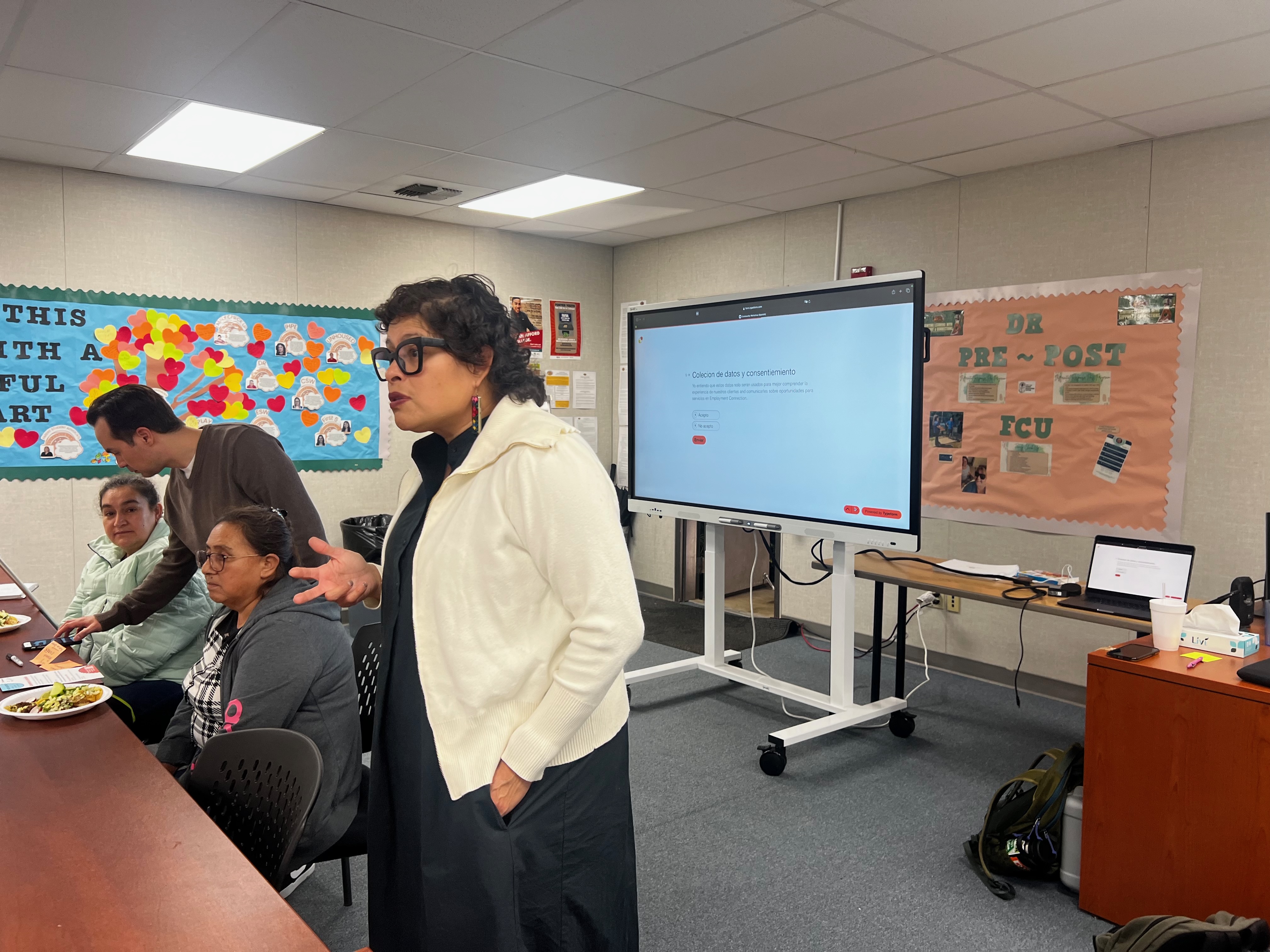
Rural Voices, Real Change
The people who experience the challenges of workforce instability every day are also the ones who hold the solutions

Challenge
When the Workforce Investment Board of Tulare County analyzed its enrollment data, a clear pattern emerged: rural communities were underrepresented in workforce programs and services. The very residents most in need of support — farmworkers, parents balancing multiple jobs, and young people seeking education pathways — were the least likely to access them.
The Board recognized that this wasn’t just about numbers. It was about equity. For people in Earlimart, Strathmore, Cutler/Orosi, Ivanhoe, and Goshen, distance, transportation, language barriers, and rigid service hours all combined to make programs feel out of reach.
As one resident in Strathmore told us, “There’s nothing here… maybe the old library, but I don’t even know if it’s open anymore. They give you an 800 number and never call you back.” Another in Earlimart recalled missing an appointment because she had no ride: “When I missed my appointment, they acted like I didn’t care. But I had no ride.”
Instead of assuming what rural communities needed, the Workforce Investment Board partnered with Middlestate to go directly into these places — to better understand the barriers, the needs, and the uniqueness of rural life, and to learn how the system could best support them.
Solution
Through the Rural Community Listening Tour and follow-up focus groups, Middlestate facilitated conversations that surfaced consistent, recurring themes across communities. These themes became the backbone of the insights:
- Stability and Security — Residents emphasized the importance of stable jobs with reliable hours, fair wages, and basic benefits. Without these, people felt they were constantly “dancing in place.”
- Opportunity and Growth — Many participants spoke of wanting training and advancement pathways. In Cutler/Orosi, workers shared frustrations that agricultural jobs demanded experience without offering opportunities to gain it. Others pointed to the need for local GED and ESL classes, mentorship, and clear career ladders
- Supportive Environments — Residents highlighted that how they are treated matters as much as the services themselves. People recalled being denied services or feeling invisible. They asked for more respectful, inclusive, and transparent processes that treat them as partners, not case files
- Distance and Proximity — Families said they would use services if they were located in familiar places like schools, libraries, and family resource centers. As one Goshen participant put it: “Everything is in Visalia… here, there’s nothing.”
- Flexibility in Scheduling — Standard 9-to-5 hours excluded many. Data from Earlimart and Strathmore showed a clear preference for evenings and weekends, especially after 5 p.m.
- Trust as the Service — Trust emerged as a cornerstone theme. Participants said they were more likely to engage when services were offered by familiar faces, in their own language, and in spaces they already visit.
"When we set out to improve how we serve rural communities, we knew we needed more than surveys or assumptions—we needed to listen. Middlestate was the ideal partner to lead this work with care, integrity, and a deep commitment to equity.
— Jennie Bautista, Acting Executive Director of the Workforce Investment Board of Tulare County

Result
The effort produced two comprehensive reports — one capturing the energy of large-scale community gatherings, and another documenting in-depth focus groups across five rural towns. Together, these reports highlighted the unique challenges in each community while also surfacing the universal truths of rural life in Tulare County: distance matters, trust is essential, and services must adapt to real lives.
The Workforce Investment Board used these findings to reshape its contracting and RFP process, embedding the voices of rural residents directly into system design.
Future workforce services will now be:
- Delivered in trusted community spaces — schools, adult education sites, family resource centers, libraries, and churches.
- Offered on flexible schedules — evenings and weekends, not just 9 to 5.
- Provided in the right languages — with cultural competence as core infrastructure, not an afterthought.
- Built with local partners — leveraging the trust that already exists in neighborhoods.
Importantly, this year marks a significant expansion in where services are offered. In previous years, workforce services were only available at two comprehensive sites (Visalia and Porterville) and two affiliate sites (Dinuba and Tulare). Beginning with this contract year, services are now co-located in more than eight rural communities — hosted in places like libraries, family resource centers, healthcare clinics, and supportive master-planned communities.
As Jennie Bautista, Acting Executive Director of the Workforce Investment Board, reflected:
“Middlestate’s thoughtful synthesis directly shaped our new RFPs, ensuring that future services reflect what rural residents actually asked for — programs delivered in the right times and languages, in familiar places, and alongside trusted local partners. For us, it was a turning point — and a model for how equity begins with listening.”
For communities long overlooked, this work set a new precedent: equity starts with listening — and acting — on the voices of those most impacted.
"Middlestate's thoughtful synthesis directly shaped our new RFPs, ensuring that future services reflect what rural residents actually asked for—programs delivered in the right times and languages, in familiar places, and alongside trusted local partners like adult schools, family resource centers, and afterschool programs."
— Jennie Bautista, Acting Executive Director of the Workforce Investment Board of Tulare County


